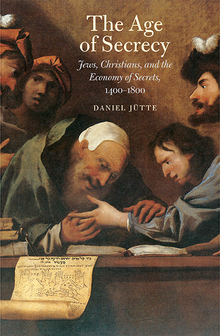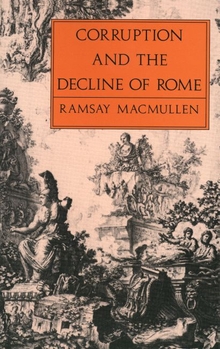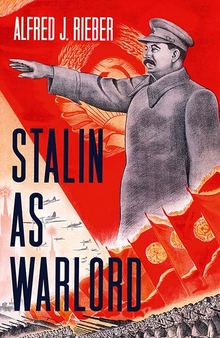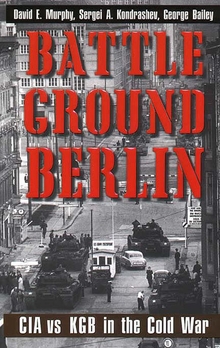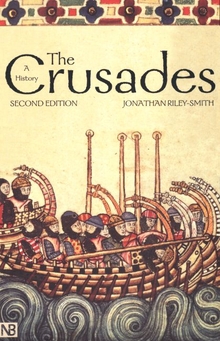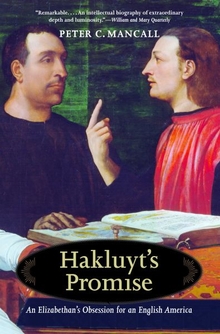The Age of Secrecy
WARNING
You are viewing an older version of the Yalebooks website. Please visit out new website with more updated information and a better user experience: https://www.yalebooks.com
Jews, Christians, and the Economy of Secrets, 1400–1800
Daniel Jütte; Translated by Jeremiah Riemer
The fifteenth through the eighteenth centuries were truly an Age of Secrecy in Europe, when arcane knowledge was widely believed to be positive knowledge that extended into all areas of daily life, from the economic, scientific, and political spheres to the general activities of ordinary people.
So asserts Daniel Jütte in this engrossing, vivid, and award-winning work. He maintains that the widespread acceptance and even reverence for this “economy of secrets” in premodern Europe created a highly complex and sometimes perilous space for mutual contact between Jews and Christians. Surveying the interactions between the two religious groups in a wide array of secret sciences and practices—including alchemy, cryptography, medical arcana, technological and military secrets, and intelligence—the author relates true stories of colorful “professors of secrets” and clandestine encounters. In the process Jütte examines how our current notion of secrecy is radically different in this era of WikiLeaks, Snowden, et al., as opposed to centuries earlier when the truest, most important knowledge was generally considered to be secret by definition.
So asserts Daniel Jütte in this engrossing, vivid, and award-winning work. He maintains that the widespread acceptance and even reverence for this “economy of secrets” in premodern Europe created a highly complex and sometimes perilous space for mutual contact between Jews and Christians. Surveying the interactions between the two religious groups in a wide array of secret sciences and practices—including alchemy, cryptography, medical arcana, technological and military secrets, and intelligence—the author relates true stories of colorful “professors of secrets” and clandestine encounters. In the process Jütte examines how our current notion of secrecy is radically different in this era of WikiLeaks, Snowden, et al., as opposed to centuries earlier when the truest, most important knowledge was generally considered to be secret by definition.
Daniel Jütte is currently a junior fellow in the Harvard Society of Fellows and a lecturer in the Department of History at Harvard. Jeremiah Riemer is an esteemed translator whose most recent translation from German is Michael Brenner’s A Short History of the Jews.
"An important, widely researched, and fascinating contribution to our understanding of both early modern European history and Jewish history."—Natalie Zemon Davis
"Daniel Jütte masterfully reveals a forgotten economy where secrets were prized, prestigious commodities rather than causes of anxiety, suspicion, or outrage. The Age of Secrecy is a major contribution to early modern history, Jewish history, and the history of knowledge."—David Armitage, Harvard University
"Daniel Jütte’s Age of Secrecy uncloaks the foundational role played by the arcane in the constitution of early modern knowledge. Look closely into hidden but knowable things, Jütte shows, and you will see a hidden but absolutely crucial world that did not collapse with what we know of as the scientific revolution. It did not even fold with the Enlightenment. Part complementary history of the early modern Judaism, part history of knowledge, this remarkable book opens our eyes to a central, if far too often ignored, dimension of European history that periodizes the history of the period in a novel and riveting way."—Peter Galison, Harvard University
“This outstanding and in many ways path-breaking work is a remarkable example of careful and detailed engagement with a wide range of scholarship and creative and careful attention to both familiar and little-discussed sources. As such, it will be a valuable resource for scholars in many fields, and it helps to further the study of early modern Jewish history, early modern science, and the culture of the early modern world.”—Dean Phillip Bell, Shofar: An Interdisciplinary Journal of Jewish Studies
“This panoramic view of the European economy of secrets is a remarkable achievement . . . opening a vista onto an otherwise obscure world.”—Raphael Magarik, MAKE Literary Magazine
“Jütte has meticulously reconstructed Colorni’s life. . . . [Age of Secrecy] is both rich and persuasive.”—David H. Price, H-Net Reviews
“[A] remarkable survey . . . Jütte’s volume challenges a number of historiographical notions regarding the relationship between Jews and science.”—Francesca Bregoli, Renaissance Quarterly
“The Age of Secrecy is an impressive and well-researched piece of scholarship that will prove useful for scholars of several different fields.”—Diego Pirillo, Journal of Early Modern History
“This absorbing and pioneering book, originally published in German in 2012, is an important addition to the history of early modern Jewish science and culture and to the growing body of scholarship on secrecy and books of secrets in early modern Europe.”—William Eamon, American Historical Review
Jütte’s work is ultimately an important contribution to the history of science. Exploring the nuanced and intricate role of Jews in the early modern economy of secrets, The Age of Secrecy is a powerful portrait of a long-ignored aspect of Jewish and scientific history.—Katherine Walker, Sixteenth Century Journal
“The economy of secrets, the subject of this innovative book, explores how and why Jews became known for their secret knowledge of everything from alchemical to medical knowledge. . . . This fascinating book is sure to open new discussions in the field of early modern Jewish Studies.”— Deborah Kaye, Religious Studies Review
ISBN: 9780300190984
Publication Date: May 26, 2015
Publication Date: May 26, 2015
448 pages, 6 1/8 x 9 1/4

